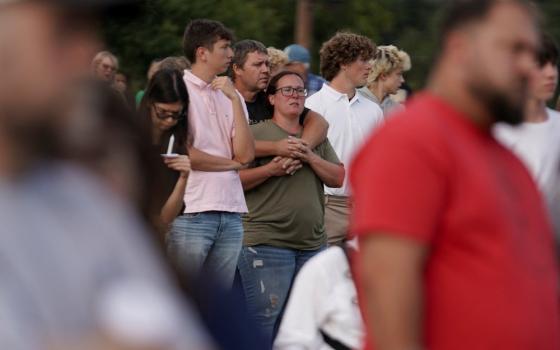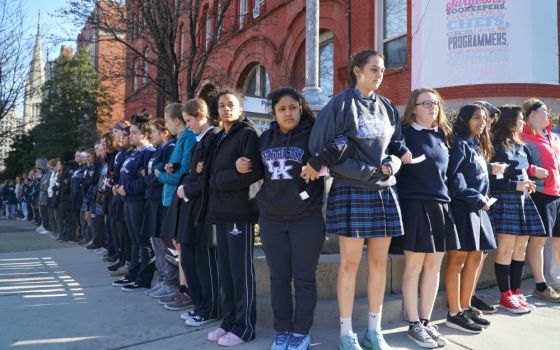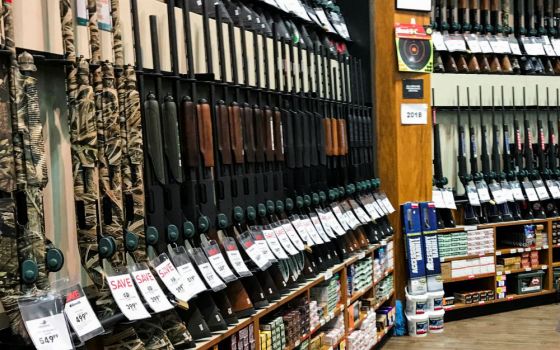
Nearly 20 years ago, a poll showed that 52 percent of Americans favored outlawing handgun sales, the first to show majority support for a ban, and pollster Louis Harris --who conducted the poll -- called it a "sea change of public opinion on this issue," according to an Associated Press report.
But you won't find that level of support today.
In fact, a 2011 Gallup Poll showed the lowest amount of support for a handgun ban (26 percent) since Gallup began tracking the issue in 1959. In that first Gallup poll, 60 percent of Americans favored banning handguns. The Harris poll is from 1993.
Although instances over the years have propelled groups of people to call for stricter gun law enforcement -- most recently the shootings in Aurora, Colo., and Oak Creek, Wis. -- the public interest usually fizzles, and interest in legislatures rarely bubbles into new bills.
"The legal lay of the land has certainly changed in terms of efforts that might seek to ban handguns," said Ladd Everitt, director of communications for the Coalition to Stop Gun Violence.
Everitt said the support for a handgun ban has decreased over the years for primarily two reasons. For starters, there are no major voices, including none of the major gun violence prevention groups, calling for a national ban on handguns (the coalition itself has not had that as part of its policy position since the late 1980s).
Also, with a 5-4 decision in the District of Columbia v. Heller case heard by the Supreme Court in 2008, the court's new reading of the Second Amendment indicates that handguns cannot be banned even at a local level because there is an individual right to keep handguns in the home for self-defense, he said.
With that ruling, a handgun ban is "not even a legitimate policy option anymore," he said. "It's been taken off the table."
Thinking of the shootings in Aurora, the coalition is discussing how effective the mental health screenings for people who undergo background checks from federally licensed dealers are -- screenings that Everitt described as "exceptionally shallow." Everitt also pointed out that one can obtain a gun without a background check if one buys a gun from a private seller.
Another focus is magazine limits and the availability of certain assault weapons, such as the AR-15 style assault rifle used in the Aurora shooting. "Our view is that that type of weapon has no legitimate purpose in the civilian population," he said.
The 2011 Gallup Poll showed that Americans have greater opposition to than support for a ban on semiautomatic guns or assault rifles, 53 percent to 43 percent. In 1994, Congress passed the federal assault weapons ban, which banned 19 types of semiautomatic weapons. That ban expired in 2004 and was not renewed.
Polls and surveys show Americans tend to support tougher enforcement of existing gun control laws rather than endorsing new legislation.
Political scientist Patrick Egan of New York University says Americans could be ambivalent about gun control because, citing data from the General Social Survey, they see the U.S. as a less violent nation than it was more than 40 years ago and fewer people own guns.
"Thus long-term trends suggest that we are in fact currently experiencing a waning culture of guns and violence in the United States," Egan wrote on the political science blog The Monkey Cage. "This is undoubtedly helping to dampen the public's support for both gun control and the death penalty. There are growing partisan gaps on attitudes regarding the two policies, but enthusiasm for both has declined recently in lockstep with the drop in crime and violence."
A Catholic News Service story last year described the difficulty in finding an answer to the church's stance on private gun control ownership. The bishops' 2000 statement on crime, "Responsibility, Rehabilitation and Restoration: A Catholic Perspective on Crime and Criminal Justice," reads, "As bishops, we support measures that control the sale and use of firearms and make them safer -- especially efforts that prevent their unsupervised use by children or anyone other than the owner -- and we reiterate our call for sensible regulation of handguns."
That's marked with a footnote that states: "However, we believe that in the long run and with few exceptions (i.e., police officers, military use) handguns should be eliminated from our society."
The article also notes that the Catechism of the Catholic Church teaches that "individuals have a right and a duty to protect their own lives when in danger, and someone who 'defends his life is not guilty of murder even if he is forced to deal his aggressor a lethal blow.' "
The Vatican has pushed for stricter limitations on the illegal and legal sale, trade and use of small firearms and weapons, according to the CNS article.
Heeding God's Call, a faith-based group in Philadelphia and surrounding areas, works to prevent gun violence through uniting people of faith to work in their communities, with a focus on eradicating gun trafficking. The group uses the nonbinding code of conduct that the Mayors Against Illegal Guns organization uses with gun shop owners, and it protests illegal sales if necessary.
"There is a substantial portion of the faith community across the country that is concerned about or frightened about" gun violence, Heeding God's Call executive director Bryan Miller said.
Those concerned people want to do something but they don't know what to do, he said. "We're about sustained action until we bring about change. And I think that appeals to people. They're tired of some high-profile death or shooting occurring and there being a little memorial or rally and then everybody goes home."
[Zoe Ryan is an NCR staff writer. Her email address is zryan@ncronline.org.]



